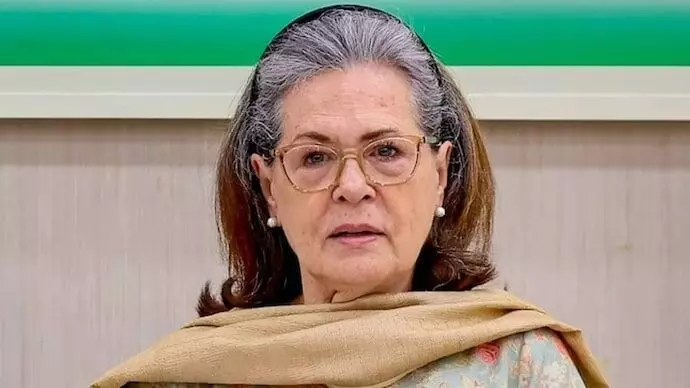“India Can’t Stay Silent”: Sonia Gandhi Criticizes Modi Govt Over Gaza, Iran Strikes

Sonia Gandhi has come out strongly against what she calls the Modi government’s “disturbing silence” on the escalating violence in West Asia. In a candid opinion piece published in The Hindu, the senior Congress leader said India’s lack of a clear stand on the crises in Gaza and now Iran reflects a deeper problem: the country is drifting away from the values that once defined its foreign policy.
“Remaining silent isn’t neutral—it’s a choice,” Gandhi wrote. “And in this case, it’s a choice that signals a loss of moral direction.”
She pointed to the devastation in Gaza over the past several months and now Israel’s airstrikes on Iran as examples of growing instability. Gandhi questioned why India, which has traditionally supported peaceful solutions and spoken up for justice on the world stage, has been largely quiet.
A statement issued by the Ministry of External Affairs expressed concern, after the June 13 Israeli strikes on Iran’s military and nuclear sites, Gandhi argued that the government’s response lacked the clarity and conviction that the moment demanded.
She stressed that India has historically backed a two-state solution—one that envisions a free and independent Palestine living alongside Israel in peace and security. But under the current leadership, she said, that stance appears to have faded into silence.
“In the face of this humanitarian catastrophe, the Modi government has all but abandoned India's long-standing and principled commitment to peace,” she wrote.
Gandhi also took time to highlight Iran’s past support for India. She recalled how, back in 1994, Iran played a key role in blocking a UN resolution critical of India over Kashmir—something she said reflects the depth of the relationship between the two countries.
“Iran has stood by us at important moments,” she noted, drawing a contrast with its earlier stance during the 1965 and 1971 wars when the former Imperial regime leaned toward Pakistan.
Her point was clear: India isn’t just a bystander in this region. It has strong ties with both Israel and Iran, and with so many Indian citizens living and working across West Asia, what happens there affects Indian lives directly.
“We’re not without influence,” she added. “India is uniquely placed to be a bridge—for peace, for diplomacy, for de-escalation.”
She also didn’t hold back when speaking about Israel’s leadership, accusing Prime Minister Benjamin Netanyahu of pushing confrontation over dialogue and fueling extremism instead of seeking peace. She was equally critical of former U.S. President Donald Trump, calling his dismissal of intelligence about Iran’s nuclear program “deeply disappointing.”
“Israel’s actions are being carried out with impunity, backed by powerful Western allies,” Gandhi said. “That only deepens the crisis and makes future peace even harder to achieve.”
Her message was ultimately a call to conscience. India, she believes, still has a voice that matters on the global stage. But it must choose to use it—and soon.
